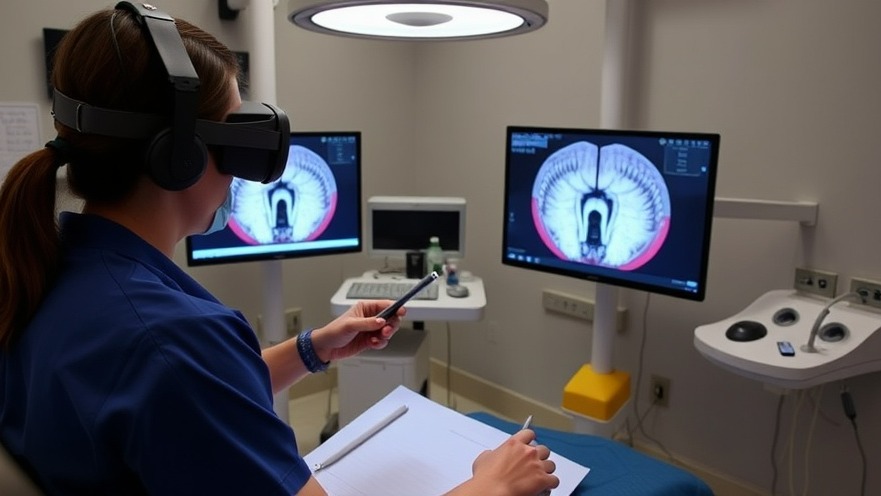
The Rise of VR in Dental Training: A Game Changer
As technology continues to reshape the landscape of education, virtual reality (VR) haptic simulators have emerged as a transformative tool in medical training. Particularly in the field of dentistry, research from the University of Eastern Finland and collaborative institutions highlights the potential of VR haptic simulators to significantly improve preclinical endodontic training for aspiring dental professionals.
Enhancing Skills Through VR Technology
The study published in the International Endodontic Journal gathered 40 dental students, dividing them into two groups: one using VR haptic simulators before traditional practice, and the other following the opposite sequence. The outcomes revealed that students who began their training with VR simulators acquired superior manual dexterity and reported lower anxiety levels compared to their counterparts. This advancement is pivotal as manual dexterity and confidence are crucial for success in clinical practice.
Stress Reduction: Why It Matters
Dental education can often be stressful, with students facing high expectations and the pressure of mastering complex procedures. The study's findings emphasize that VR simulators not only improve technical skills but also foster a healthier emotional environment. Students experienced notable stress reduction after utilizing VR technology, making them feel better prepared and more confident during real-world practice.
What Future Holds: Innovations on the Horizon
Experts suggest that VR technology is just the beginning. The future may hold further integration of VR in more advanced aspects of healthcare training, possibly benefiting other medical fields beyond dentistry. As educators explore these possibilities, the importance of ongoing research into long-term impacts on skill retention and patient outcomes will be paramount.
Comparative Analysis: Traditional vs. VR Education
This pivot towards VR-based education challenges the traditional methods that have dominated dental training for years. While traditional approaches have their merits, increased repetition, and improved feedback mechanisms provided by VR could represent a paradigm shift in how medical professionals are groomed. This blend of traditional hands-on practice with modern technology may soon become standard, instead of a supplement, in dental curricula.
Insights for Health Practitioners
For concierge health practitioners, this trend signifies a move towards a more skilled and emotionally prepared talent pool of dental professionals. As VR becomes more integrated into training programs, practitioners can expect a new generation of dentists who are not only technically proficient but also capable of managing the psychological aspects of patient care and procedural stress.
Conclusion: Addressing the Future of Dental Training
The implications of this study are profound. For health practitioners striving to stay informed about technological advancements, embracing VR in preclinical education could improve overall patient care, as students trained under this new system will be better equipped for the challenges they will face in their professional journeys. As technology continues to evolve, proactive adaptation will be key in ensuring that practices harness these advancements effectively.
Stay informed about the latest healthcare technology trends and how they can enhance your practice. Together, we can create better outcomes for our patients and shape the future of dental care.
 Add Row
Add Row  Add
Add 






Write A Comment